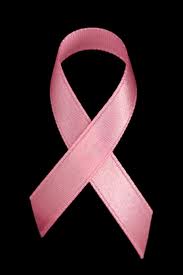 Women who undergo treatment for breast cancer may be offered the possibility of reconstruction if they opt for mastectomy. This may lead to a discussion on whether or not to do reconstruction immediately during the initial surgery or delay it until any other treatments like chemotherapy are complete. Two new studies published in the September edition of the Archives of Surgery provide additional information that could influence this decision.
Women who undergo treatment for breast cancer may be offered the possibility of reconstruction if they opt for mastectomy. This may lead to a discussion on whether or not to do reconstruction immediately during the initial surgery or delay it until any other treatments like chemotherapy are complete. Two new studies published in the September edition of the Archives of Surgery provide additional information that could influence this decision.
One study finds that about half of the women who need radiation therapy after having had a mastectomy with immediate reconstruction develop complications that require additional surgery. Another study finds that chemotherapy does not affect complication rates after mastectomy and immediate reconstruction.
Dr. Rodney Pommier, professor of surgery at Knight Cancer Institute in Portland and his colleagues found that among the women who had mastectomies and who needed radiation, complications occurred in 44 percent of those who had immediate reconstruction, but only in 7 percent of those who did not have immediate reconstruction. Both scenarios, having radiation after mastectomy and having reconstruction done immediately---strongly predicted the risk of complications according to the researchers. Radiation tripled the risk, and immediate reconstruction increase the risk eightfold.
Implants had to be removed in 31 percent of patients who had radiation after mastectomy, compared to just 6 percent of those who did not have to have radiation, the researchers reported. Pommier said that these results were higher than expected and have changed his way of thinking. He now suggests that having a biopsy of the sentinel lymph node (if positive for tumor, generally indicates that radiation may be needed) would be important. Typically this sentinel node biopsy is performed during the mastectomy but it can be done as an outpatient procedure before the mastectomy and before the decision to have reconstruction is made. The determination to do radiation also depends on other factors, such as tumor size, and some surgeons may have a different opinion about the additional sentinel node surgery. There are also different reconstructive techniques that may influence outcome.
In the second study, researchers from the University of California, San Francisco, found that chemotherapy, either before or after the mastectomy and immediate reconstruction, had no bearing on complications and the need for more procedures.
To read more click here.
 The U.S. Food and Drug Administration (FDA) this month approved the Natrelle 410 Highly Cohesive Anatomically Shaped Silicone-Gel Filled Breast Implant to increase breast size (augmentation) in women at least 22 years old and to rebuild breast tissue (reconstruction) in women of any age. Natrelle 410 implants are manufactured by Allergan, Inc.
The U.S. Food and Drug Administration (FDA) this month approved the Natrelle 410 Highly Cohesive Anatomically Shaped Silicone-Gel Filled Breast Implant to increase breast size (augmentation) in women at least 22 years old and to rebuild breast tissue (reconstruction) in women of any age. Natrelle 410 implants are manufactured by Allergan, Inc.
 Women who undergo treatment for breast cancer may be offered the possibility of reconstruction if they opt for mastectomy. This may lead to a discussion on whether or not to do reconstruction immediately during the initial surgery or delay it until any other treatments like chemotherapy are complete. Two new studies published in the September edition of the Archives of Surgery provide additional information that could influence this decision.
Women who undergo treatment for breast cancer may be offered the possibility of reconstruction if they opt for mastectomy. This may lead to a discussion on whether or not to do reconstruction immediately during the initial surgery or delay it until any other treatments like chemotherapy are complete. Two new studies published in the September edition of the Archives of Surgery provide additional information that could influence this decision.